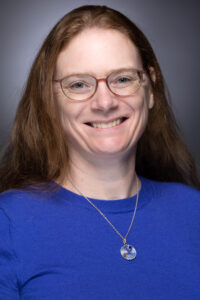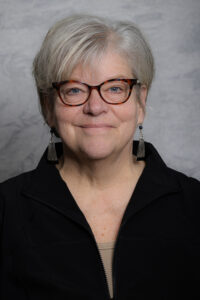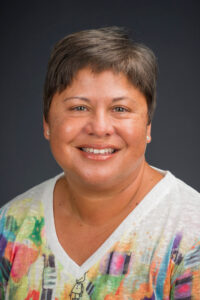MADISON, Wis.—The University of Wisconsin System Board of Regents today announced the recipients of its 30th annual Teaching Excellence Awards. They will be honored April 8 at the next Regents meeting. The awards recognize outstanding teaching and are the UW System’s highest recognition for members of its faculty and instructional academic staff. Each recipient is awarded $7,500.
“These outstanding UW educators inspire students and colleagues alike to achieve their full potential,” said Regent Cris Peterson, chair of the selection committee. “We celebrate their dedication and innovative approaches to student success.”
Each award recipient demonstrates a strong commitment to teaching and learning; uses effective teaching strategies to enhance student learning; and makes a significant impact on students’ intellectual development.
The 2022 recipients are:
-
Laura McCullough, Professor, Department of Chemistry and Physics, UW-Stout.
Dr. McCullough, a tenured faculty member, instructs all levels of physics courses and is especially passionate about entry-level physics. She uses research-based classroom strategies, including clicker-type questions, think/pair/share activities, and student whiteboards. She successfully implemented standards-based grading in 2012, which uses a series of learning objectives students must pass to demonstrate their understanding of the material. This method of grading accommodates students with learning disabilities as well. She includes course content and activities that focus on career placement and presents her research about the advancement of women in science, technology, engineering, and mathematics (STEM) fields at regional and national conferences. During the pandemic, she adapted her instructional techniques to actively engage with students online, such as recording lectures using a “lightboard” – technology that allows an instructor to face the camera while drawing on transparent glass. In 2021, she earned UW-Stout’s Outstanding Educator Award in the College of Science, Technology, Engineering, Mathematics and Management. -
Mimi Rappley Larson, Associate Professor, Social Work Program, Department of Human Behavior, Justice, and Diversity, UW-Superior.
Prof. Larson is a tenured faculty member in UW-Superior’s Social Work Program, where she has taught since 1997. She began her teaching career with more than 10 years of experience as a social worker, allowing her to share real-world perspectives with her students. Her educational philosophy emphasizes building relationships, embracing active teaching and learning methods, and creating an interactive learning environment that promotes critical thinking and student ownership of learning. These practices have culminated in her teaching approach grounded in empathy—the ability to be present with what a person is experiencing in the moment—a skill especially important for social workers to establish trust and rapport with clients. Larson developed a three-step process to teach empathy, resulting in statistically significant improvement in students’ understanding and practice of empathy. She co-authored a chapter about teaching empathy in New Directions for Teaching and Learning: Big Picture Pedagogy: Finding Interdisciplinary Solutions to Common Learning Problems (Jossey Bass, 2017). -
Communication Department, UW-Parkside.
The goal of UW-Parkside’s Communication Department is to teach students to be effective communicators in varied contexts, preparing them to be flexible, resourceful, and capable of performing at high levels for any kind of position, even positions that do not exist yet. Faculty and staff redesigned learning goals and instituted high-impact practices (HIPs), such as community-based learning and undergraduate research. These steps have transformed student learning and benefited historically marginalized student populations. Communication majors reflect UW-Parkside’s overall student demographics, including a high percentage of students of color, Pell recipients, and first-generation students. Career exploration courses help students integrate career planning with their studies and the department’s retention and graduation rates outperform other majors at UW-Parkside. The National Association of System Heads (NASH) featured the department’s curriculum-wide implementation of high-impact practices as a case study. Departmental faculty submitted a chapter for the new book, Delivering on the Promise of High-Impact Practices: Research and Models for Achieving Equity, Fidelity, Impact, and Scale, published by Stylus. Department graduates are hired by well-known organizations around the country and internationally.
Others on the selection committee were Regent Mike Jones, Regent Corey Saffold, and Regent Jill Underly.
The committee also recognizes the important contributions of this year’s other nominees:
Individual nominees included Dr. Chris Ahrendt, UW-Eau Claire; Dr. Brian Merkel, UW-Green Bay; Dr. Daniel Erman, UW-Madison; Dr. M. Elsbeth “Misty” McPhee, UW Oshkosh; Dr. Penny Lyter, UW-Parkside; Dr. Patti Cudd, UW-River Falls; and Dr. Nomsa Gwalla-Ogisi, UW-Whitewater.
Program nominees included the First Nations Education Doctorate, UW-Green Bay; the Exercise and Sport Science Department, UW-La Crosse; the Reading and Study Skills Center, UW Oshkosh; the Psychological Sciences Department, UW-River Falls; the Department of Theatre and Dance, UW-Stevens Point; the Teaching and Learning Hub, UW-Stout; and the Department of Geography, Geology, and Environmental Science, UW-Whitewater.
To download high-resolution photos of recipients, click on each thumbnail image.
The University of Wisconsin System serves approximately 165,000 students. Awarding nearly 37,000 degrees annually, the UW System is Wisconsin’s talent pipeline, putting graduates in position to increase their earning power, contribute to their communities, and make Wisconsin a better place to live. Nearly 90 percent of in-state UW System graduates stay in Wisconsin five years after earning a degree – with a median salary of more than $66,000. The UW System provides a 23:1 return on state investment. UW System universities also contribute to the richness of Wisconsin’s culture and economy with groundbreaking research, new companies and patents, and boundless creative intellectual energy.



